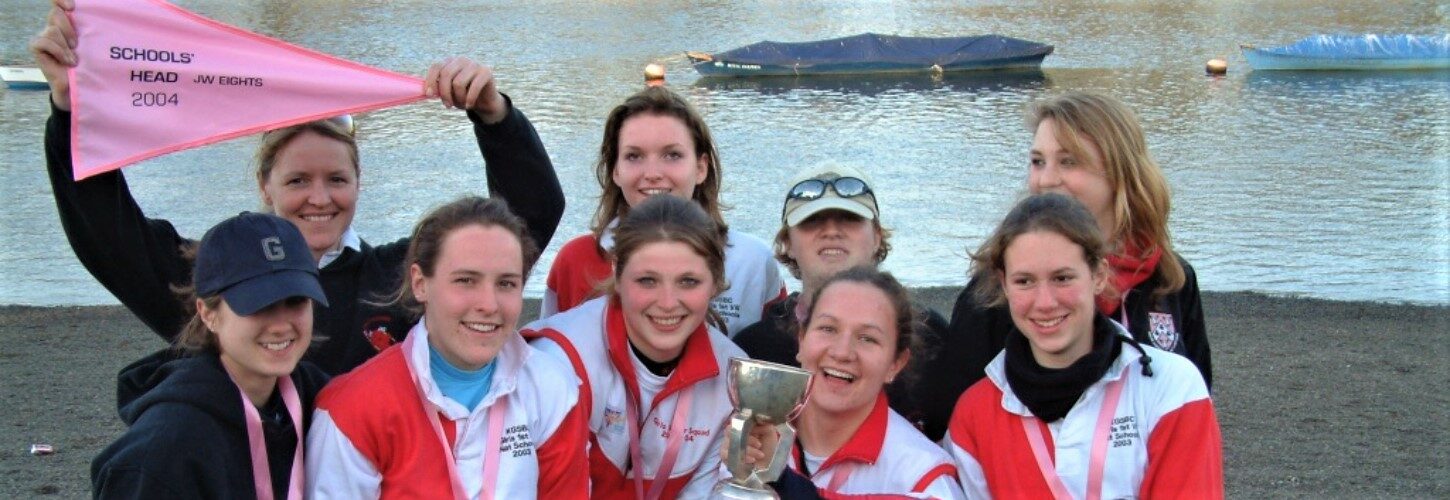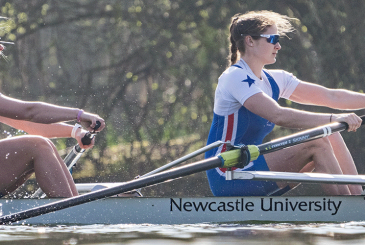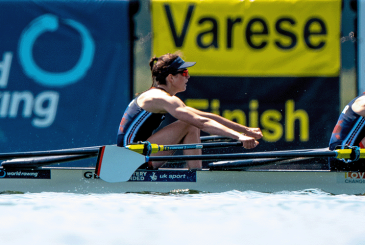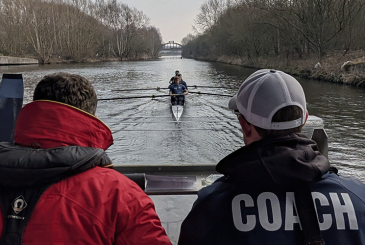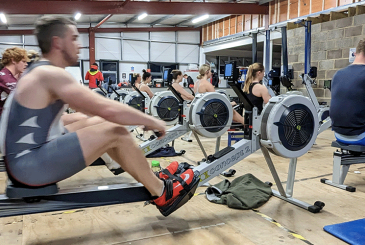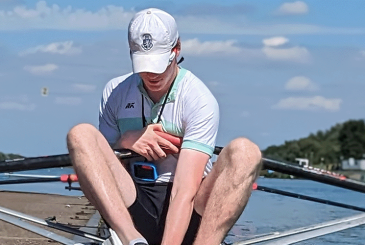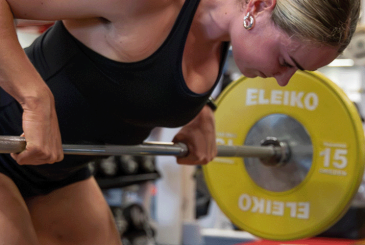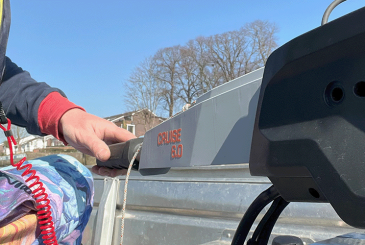Often a lone female coach in a male environment, Eira Parry made a name for herself with success from school to international level, establishing some lasting relationships, and now works with rowing parents. She talks to Martin Gough about her coaching highlights
Winners of the biggest events always grab the headlines but what is left after the results have been forgotten? Memories and strong relationships endure long after the medals have been consigned to a cupboard.
Parry has a photo from her wedding to Olympian Peter Beaumont, with some of the athletes she has coached during a career spanning two decades. One of them calls Parry her “Rowing Mum” and Parry now works in helping parents support their children through their sporting careers.
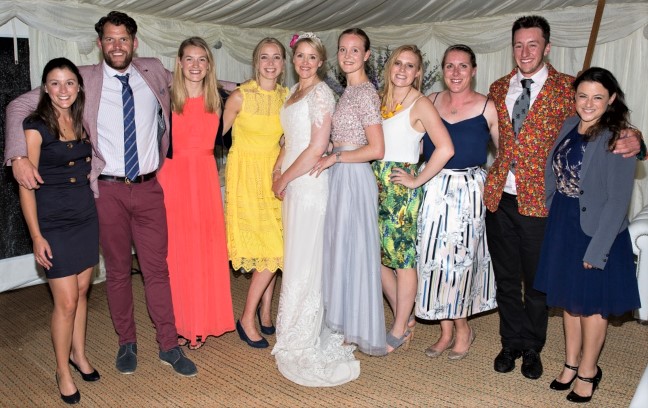
It says much of Parry’s impact that a social media call looking for great female coaches elicits replies nominating her from former schoolgirls and Olympic champions.
“Thinking about it now, what I liked most about working under her was her competitiveness,” says Helen Glover, who worked with Parry in 2010 as she and partner Heather Stanning fought to make it into the Great Britain team for the first time. Six years later they had their second Olympic gold together.
“She treated us like athletes rather than just schoolkids who wanted to row”
“She fiercely wanted us to do well at trials and get onto the team, not just for us but because she was absolutely out there to prove herself.
“I love a coach who is on a mission – you feel like that’s the train you want to be on.”
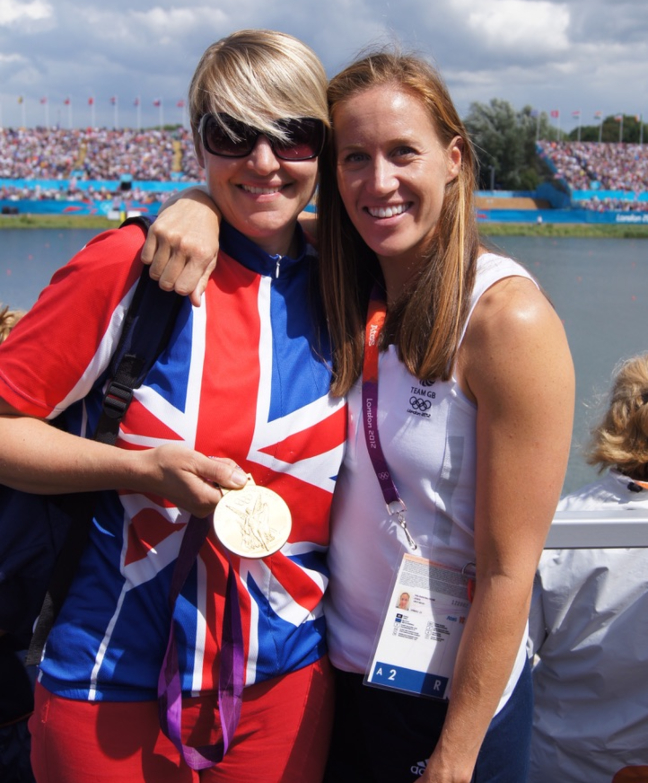
Zoe de Toledo, cox of the Olympic silver medal GB women’s eight at Rio 2016, is one of the people in that wedding photo, after her eight was coached by Parry for a gruelling summer in 2011.
“I’m always sad that Eira left [coaching] rowing, although she’s obviously gone on to do great, different things,” she says. “The sport needs more female coaches but not just any female coaches, good female coaches. And she was really good.”
Parry, the youngster of three daughters whose father David was a stalwart of Walton RC and a Henley Steward, got into rowing as a 15-year-old and raced for Great Britain at the GB-France Match.
She returned to the sport in her 20s, while qualifying as a teacher, racing for Wales at the Home International Regatta and qualifying for Henley Royal in her single scull in 1998, the early years of established women’s events at the regatta.
She was beaten in the first round easily and recalls: “I was the only daughter of a steward to have raced at the regatta. I thought that was quite cool although I wished I could have been a bit faster and got through.”
Parry began her coaching career while still a school teacher, making an immediate impact at Kingston Grammar School (KGS) when she took over the senior girls’ squad in 2002. Her coach at Molesey, Peter Sheppard (now GB’s head coach for under-23s and juniors) helped her put together the training programme.
“You’ve won. Don’t ever forget this because it will never feel like this again”
“She completely turned around rowing for girls at KGS and I was gutted to leave at the end of that year because she had only just started coaching us!” says Antonia Perlowska-Goose, who was squad captain in her upper sixth year.
“She treated us like athletes rather than just schoolkids who wanted to row. We knew why we were doing a session, had more of a focus on the lead-up to each event. She made rowing important.
“In previous years our results were awful but she made us feel we were worth coaching. Because we had a maximum of 12 rowers, it became a really tight-knit group and she was part of that group.”
Parry says of the 2003 Schools Head: “Shep was downstairs in the Westminster boathouse as part of the timing team. He called me in just before the results were announced and said, ‘You’ve won. Don’t ever forget this because it will never feel like this again.’
“I couldn’t believe I’d done it in a year. That was a great moment.
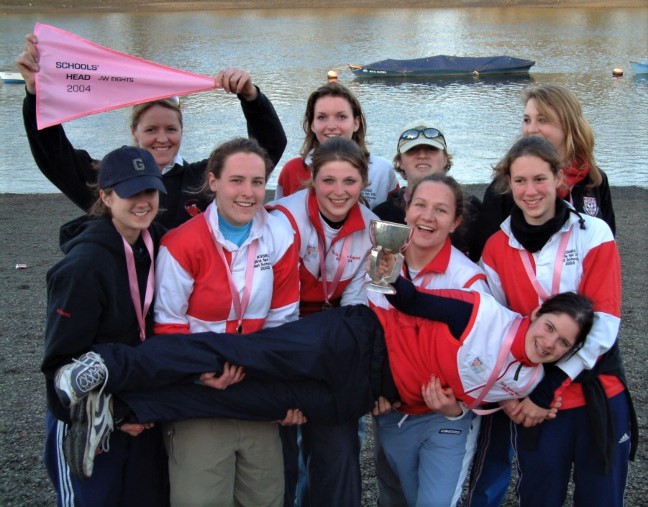
“When I look back on all my coaching, I didn’t celebrate enough the little wins on the way. The minute we had won something, I’d just forget about it and move onto the next thing
“There were some girls there that were very high achievers – [future Olympic champion] Sophie Hosking won a junior worlds silver medal – but there were some girls who were doing all the training and the best thing they were going to do was win a pot at Thames Ditton Regatta. I should have taken more time to congratulate and praise those athletes.”
When a seven-day working week, combining teaching and coaching, became too much, Parry took a job with the British Rowing Start programme at Reading from 2004 to 2012.
“She allowed herself to show her own emotions and I found that quite refreshing”
During that time she coached at all levels from junior to senior internationals, as well as identifying talent like Olivia Carnegie-Brown, a 15-year-old from Reading who went on to win a silver medal in Rio.
Parry says: “The best bit was the fact I was lucky enough to work with a lot of athletes who went on to win Olympic and world medals, to work with people before they hit the big time and be part of that crafting and shaping of young athletes.”
Glover and Stanning moved to Reading to be coached by Parry in the lead-up to their first GB trials, after their first coach Paul Stannard took a job with the senior team.
“Paul kept a distance between him and his athletes. There was a line that wasn’t crossed with your closeness,” says Glover.
“Within a month of working with Eira, I felt I knew her personally quite well. There was a combination of the brutal honesty of a coach with a warmth as well, which worked.
“She had this pair thrown at her who might be good enough for the GB Team but were pretty rough. There was real pressure. I think she lived the next three years [to London 2012] with us because she had been there on the cusp of that exciting, pivotal moment.”
Parry had done some work with the Great Britain senior squad at Caversham during the Beijing Olympiad up to 2008, working with single sculler Sarah Winckless and with the men’s quad, but she says: “I probably did my worst coaching in that environment. I felt like a square peg in a round hole.
“To a parent who doesn’t know anything about it, rowing is a minefield”
“The weight of being the only women there, I felt out of my depth and I found it too stressful.
“I don’t think that’s anything conscious but – in any environment – if all the people in charge are male, subconsciously that environment is going to be more suitable to that gender.
“There have been other women knocking on the door of coaching on the team – Jane Hall is currently doing a great job. Hopefully more women will see Jane and say, ‘I want to be that.”
Parry’s influence was profound for De Toledo in the summer of 2011, although the project they worked on together was filled with frustration and ended in disappointment when they missed out on a medal at the European Championships.
“She allowed herself to show her own emotions and allowed us to see that certain things upset her or were exciting for her and I personally found that quite refreshing,” says the former cox.
“Ultimately we’re all adults and I’ve always found it quite odd when a coach acts like a teacher from when you were at school.”
Technical lessons De Toledo took on board during that time lasted through her career and have occasionally come out even when she has coached novices.
She recalls: “We really struggled with doing anything fluid at the start [of the race]. It was always set up as being very play-by-numbers: a half-slide stroke then a three-quarter, then a half. It was all very robotic.
“Eira said, ‘Imagine if I lined you all up on land, you all held hands and I asked you to run as fast as possible. You wouldn’t have a conversation; you would just run and build speed. That’s what I want the start to be like.’
“I’d been in some really good boats before, but it was one of the first times I started to think that these were people who were experts at the sport. If they were in a single they would just go with boat feel so why couldn’t we do that in a big boat?”
For Parry the 2011 season was the beginning of the end of her hands-on coaching career. She says: “I have fond memories of that amazing group of girls, but the experience broke me!
“I was running a big programme at Reading – at one point I had 26 athletes from age 15 to 30 – and I over-committed.”
From that low point, though, her new business High Performance Parenting was born.
“I finished working with British Rowing in 2013. I didn’t have another job to do. I was exhausted and I needed a break.
“I missed dealing with young people. I missed the feeling of supporting people and helping them make changes. I wanted to be involved with the sport I love and involved with people.”
The genesis of her idea came back in the Kingston Grammar School days. She recounts: “At one of the autumn head races at Henley, we had loads of crews. We sent very little information out to parents.
“One of the boys’ step-mothers came. She had obviously seen ‘Henley’ in the event title, heard about the regatta and turned up at Henley Sculling Head – it was pouring rain and muddy – in high heels and a hat. It sounds funny, but for her it probably really wasn’t.
“To a parent who doesn’t know anything about it, rowing is a minefield, all the terms, types of competition. It can have a reputation as a snobby sport and sometimes you get parents who are too embarrassed to ask questions.
“My ethos with parents now is to support them to have a positive journey with their kids through sport and for them to have the tools and the confidence to enable their kids to fulfil their potential.”
“The best sportspeople I worked with weren’t afraid to take risks, make mistakes and learn from them. I try to encourage parents to support their children not beat themselves up about things going wrong but be reflective, resilient, team players.”
As for Parry’s own high-performance parenting, Carnegie-Brown – now a consultant at EY in Brisbane – is still close to her rowing mum, as are five or six others from back in the day.
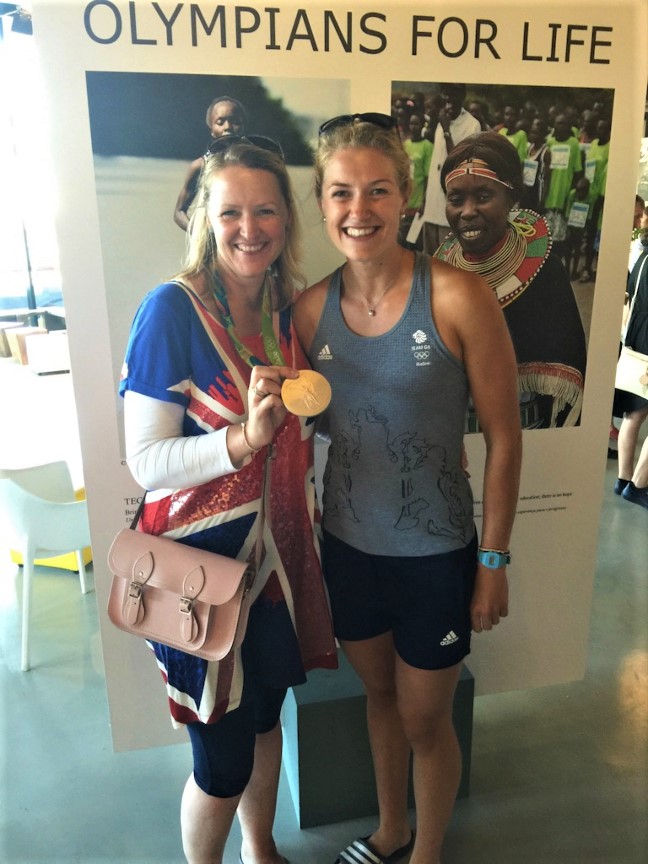
Parry’s stepson Jack – who is aiming to race at his second Olympics in Tokyo – has been at home during lockdown, regularly chatting rowing and life.
“I feel I get my coaching fix without having to get up at 6am or work seven days a week,” she says. “It’s a win-win for me.”
Photos: Eira Parry


